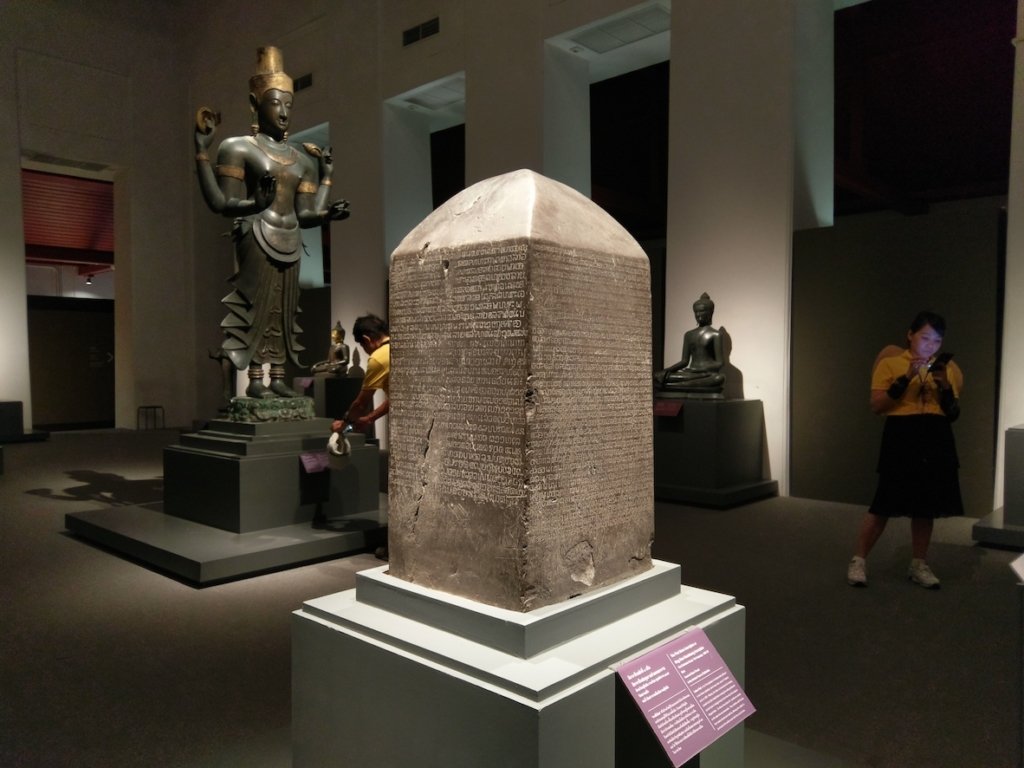https://www.scmp.com/lifestyle/arti...jyn7DOi7wyK_Xx52v7PlinP19GPB4P8458-fTZRpCRp-s
I'm referring to the campaign that Bokator practitioners have been doing to talk that Bokator originated the muaythai
You are being hyperbolic. There is no campaign to suggest fool people that bokator is the originator of Muay Thai, the article (which doesn't even directly quote him on Muay Thai) says:
He says that while regional sports such as Muay Thai (Thai boxing) are famous throughout the world, their origins come from bokator. This is because the Khmer empire covered vast swathes of Southeast Asia, including large parts of Thailand, during its peak in the 12th and 13th centuries. “Bokator is the original,” he says with pride.
Before master San Kim Sean returned from the US to Cambodia in around 2001, the name Boxkator was virtually unknown in the country. The "term" existed in a couple of texts on the history & culture of the Khmers - but only as one of a list of weaponry programmes without any detail.
What texts are you saying it was cited in? You likely won't get any Cambodian texts, as the majority of the country was illiterate - and so much history was intentionally destroyed by the khmer rogue. Including killing people with education in both University/School and martial arts.
On the origin of Muay Thai:
The only actual answer to this is we do not know what the 'father' of Muay Thai is. The Thai government have been inventing tradition and mythology surrounding older Thai martial arts and the 'boran' styles (Boran being actually a relatively new term) are also largely reconstructions. There do appear to be some surviving lineages of original Muay Khorat, Lopburi and Chaiya but these are rare. We also don't have much reason to believe that the stone engravings of martial artists fighting are necessarily what we would call muay today, or even what we'd have called muay 200 years ago.
We know that Muay existed as an entertainment sport from at least the 1700s, and we know the term 'Muay Thai' came from the Suan Kulap college to differentiate it from western boxing.
Source:
Muay Thai: Inventing Tradition for a National Symbol (Sojourn: Journal of Social Issues in Southeast Asia - Vol. 29, No. 3 (November 2014), pp. 509-553)
So could Bokator be Muay Thai's father? The only real answer is we don't know, and we likely never will know. The martial arts in South East Asia, Tomoi, Muay Thai, Pradal Serey, Muay Laos, Lethwei are all so similar that we can pretty much consider them to be the same martial art. Lethwei is a bit of an outlier in that headbutts are still allowed in competition - but even then. Which country was first to spread this martial art around all of South East Asia? Who knows.
I am inclined to say Bokator is not the progenitor of Muay Thai, purely because there isn't enough evidence to suggest that it is true. Does this mean there is some conspiracy to promote Bokator as the father of Muay Thai? No. At least not based on the evidence that you have provided.











